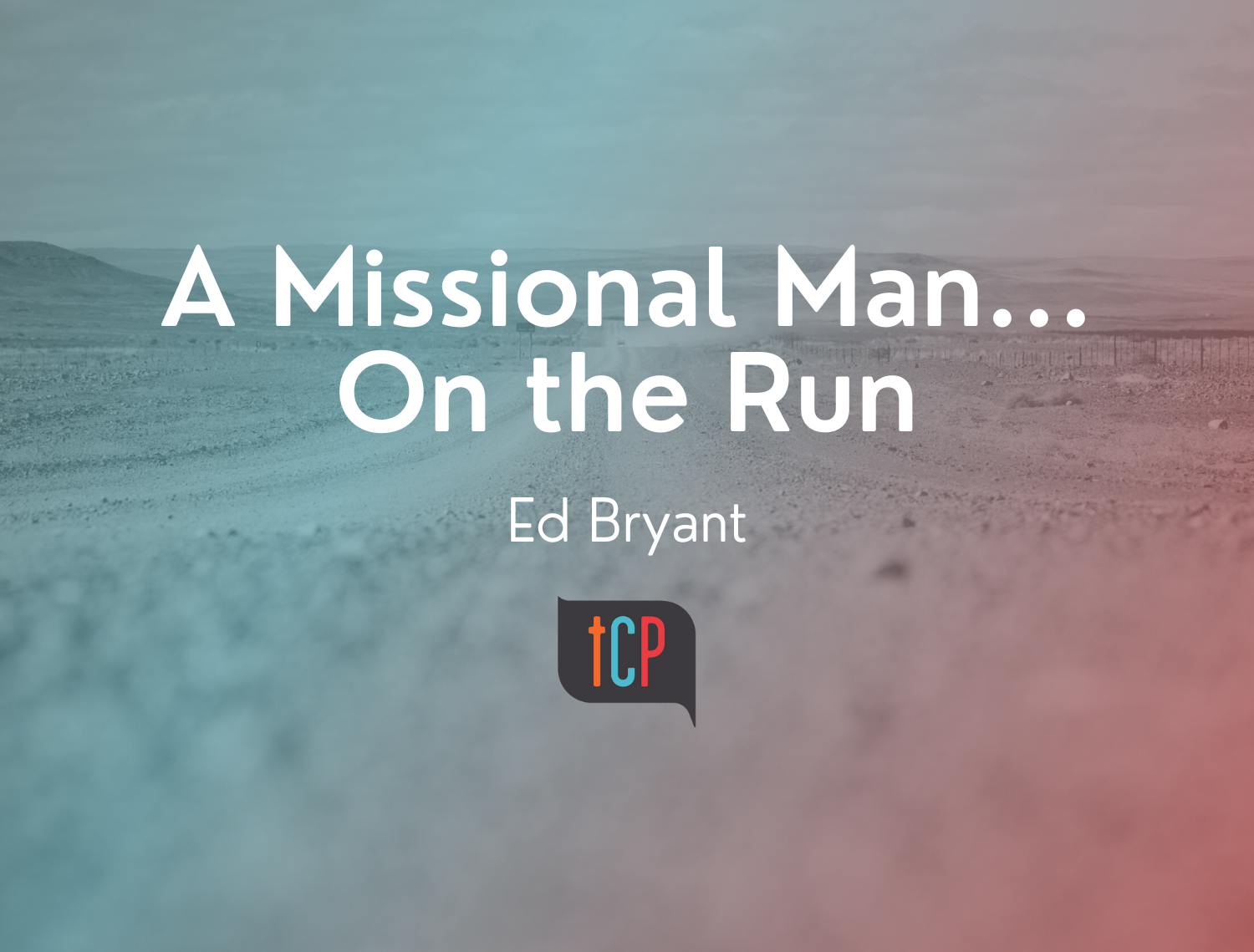A Missional Man … On the Run
By Ed Bryant
When I re-read Acts 17, one of the first things that struck me was Paul’s particular situation in Asia Minor, on his way to Athens. Going back into the account of Chapter 16 in Acts, where Paul is at Philippi, then moving forward into the accounts of his journeys through Thessalonica and Berea, we get a sense of a certain type of tension. Paul was on a “man on the run.” I thought that he could have easily just wanted to settle somewhere. He might need rest. He might want refreshment. But even on the run, he remains “on mission.”
And that is where we find him in Acts 17. In Athens, we see Paul continuing his modus operandi of persuading and reason in the marketplaces, whether it was a port town, like Thessalonica or the intellectual capital of ancient Greece, Athens.
As someone whose primary vocation is not in academia or the Church, several things about Paul impress me and influence how I try to do my work.
First, I appreciate how Paul’s approach to missions work has a strong sense of “everydayness.” I could easily see Paul, waking up in the mornings, lacing up his sandals, putting on his clothes and heading to where people were working or gathering. Then he seems to simply move in among the people. There is a sense of him valuing presence with people, as we would say in inner-city work, being among “the folk.” When you are WITH the folk, you see, hear, and experience the lives of people…in the real. You position yourself as one of us, as opposed to seeing others as – others.
Second, I appreciate how Paul is drawn to what social scientist William Julius Wilson called “the truly disadvantaged” or what law professor Derrick Bell referred to as the “faces at the bottom of the well.” These are people whose lives have been impacted by oppressive systems and institutions, but for whom the good news of the Gospel offers liberation.
Third, I appreciate how Paul doesn’t seem to be too exercised by the “push back” he gets along the way, even when he is beaten, jailed, and run out of town. These occurrences seem to be merely another day-in-the-life of Paul. He just moves on.
Finally, I’m impressed that Paul retains his curiosity about people. When we get to Acts 17 and Paul’s journey to Athens, he continues to speak, reason, and persuade. He still moves among the folk. But this time he is able to see that the people of Athens have the same need for liberation, but from different systems and institutions.
Perhaps that need for liberation, that reach of the gospel—the good news—to anyone and everyone equally, is what leads Paul to see all in the same sort of light. My favorite verses in the passage are verse 26 and 27, where Paul states that God made every person from “one blood,” with the ultimate intent that we would seek after Him and find Him.
What does all of this have to do with being in the marketplace? I think it can be helpful as we consider how to best orient ourselves in the marketplace. First, we can intentionally develop an appreciation for the everyday, the mundane, as we have for the spectacular. Second, we can develop an awareness of people who may not be “at our level” professionally and ask ourselves questions about the systems these people may have to navigate—systems that we may not have to move through.
Third, we can resist the fear of opposition. We don’t have to allow the possibility of opposition to deter us from doing what is right and bold. Honestly, I’ve learned in my career that when I took chances, sometimes in the face of opposition, the “stretching” helped me to grow professionally.
Finally, we can remain curious. That curiosity extends to so many things, but it springs from a sense of God’s abundant love for the world (John 3:16). When Pastor Tim Keller passed away, I shared with a friend of mine who owns a Christian bookstore in Pennsylvania that one of the things Keller helped me navigate was how to explain my love of cities. He taught me not to apologize for that love and curiosity. Since college, I have always been drawn to all things urban, and in reading Keller, in experiencing his curiosity and love for the world, I became far more comfortable in the vocation I was drawn to—urban affairs and policy. I now firmly believe that in the work I do, I am participating in the same work of Paul in Athens, helping people see that “He [God] is not far from each one of us.” (Acts 17:27)
Edward Bryant is Vice President for Public Affairs and Communications at Heartland Coca-Cola and a Board member of The Carver Project.

